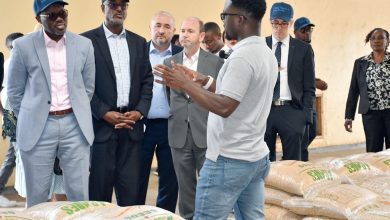Universities team up with CAT
Globally, institutions of higher learning churn out skilled minds and innovations for socio-economic prosperity.
However, Malawi’s universities have limited capacity to produce practical insights and solutions to the prevailing challenges.
Low funding, limited resources and underdeveloped infrastructure stifle their research and development. Other challenges include a shortage of qualified academic staff and training opportunities.
In 2019, the Centre for Agricultural Transformation (CAT), with financial support from the Global Action to End Smoking, collaborated with some public institutions of higher learning to close the gaps.
These institutions are Malawi University of Science and Technology (Must), Lilongwe University of Agriculture and Natural Resources (Luanar) and Mzuzu University (Mzuni).

The partnership actively encouraged knowledge exchange, resource mobilisation and collaborative problem solving.
Among others, CAT brought smallholder farmer-centred and community-focused knowledge alongside practical agricultural expertise and science while the universities contributed academic rigour and research capabilities.
This synergy gave rise to innovative interventions, giving students and academic staff valuable hands-on experience.
Thanks to this partnership, Must rolled out a bachelor of science programme in food science and technology that enrolled its first cohort in 2022.
“Agriculture requires data solutions these days,” says CAT executive director Macleod Nkhoma. “So, we needed to train Must teaching staff to impart the knowledge to students who will be absorbed by industry to offer that service of data analytics, food science and technology as well as renewable energy.”
The centre also supported entrepreneurship academies for university students and the youth in surrounding communities to nurture their talents and innovative ideas for industry use.
Through this initiative, CAT awarded 11 scholarships to university students—seven for masters of science studies and four for PhDs.
The recipients are doing various studies in South Africa, Kenya and Rwanda.
Additionally, CAT provided support for PhD fellows and teaching interns at Must in Thyolo District.
Must has established a University Innovation Garage and developed five agricultural technology and innovation prototypes to help address smallholder farmers’ challenges.
In the Northern Region, CAT worked closely with Mzuni’s African Centre of Excellence in Neglected and Underutilised Biodiversity.
The partnership promotes collaborative research, industrial skills development, product innovation, marketing support and business incubation.
Together, the collaboration seeks to boost smallholder farmers’ productivity and incomes in line with the Malawi 2063 vision to turn the country into a self-reliant, industrialised, upper middle-income economy by the centenary of self-rule.
“Our memorandum of understanding spells out how we will work together to enhance agricultural productivity and incomes for smallholder farmers, foster collaborative research, provide industrial training, develop products and facilitate marketing and incubation,” Nkhoma stated after signing an agreement with Mzuni
The pillars of the deal include sharing research facilities, technological innovation, resources, farmer-centred studies as well as staff and student exchanges.
The two institutions will also pursue joint master’s and PhD training, proposal development, funding submissions as well as conferences and workshops.
At Luanar in Lilongwe, CAT trained students in business management and supported demand-driven research.
The support empowered students to harness research for solving real-world problems identified by smallholder farmers and emerging enterprises.
Luanar’s AgriBiz Hub also received funding to strengthen entrepreneurship training and organise entrepreneurship for students and the youth off-campus.
Mike Goliath, who obtained a bachelor of science in animal science, says the training was a revelation.
“I will apply the knowledge and skills gained from the entrepreneurship academies to address challenges that affect livestock farmers in my community,” he said.
Mzuni Vice-Chancellor Professor Wales Singini says the collaborative approach has the potential to enhance universities research inroads.
He states: “Concerns have been raised about whether higher education is effectively or truly transforming communities, but I am encouraged by the positive shift occurring in higher education.
“Mzuzu University is committed to impactful research and this partnership will provide students with valuable learning opportunities.”
Singini says working together with like-minded think-tanks like CAT makes the public universities better positioned to produce sustainable community-focused solutions, contributing to a more equitable and resilient future for all.





